Summary / TL;DR
Podcasting can significantly improve onsite SEO by offering unique, keyword-optimised content that enhances visibility and drives user engagement. High-quality podcasts help brands rank for more keywords by embedding search terms in transcripts, metadata, and scripts, and leveraging Google's audio search capabilities. Engaging and informative episodes reduce bounce rates and increase time on site, while demonstrating expertise and authority, which supports Google’s E-A-T standards. Podcasts also attract backlinks when they feature expert insights or serve as quotable content for other creators. Additionally, they can revitalise existing content through repurposing and offer valuable data for ongoing SEO performance analysis.
Search engine optimisation (SEO) continues to be one of the most essential tools for marketing. While technology and tastes evolve, it remains the case that search engines are one of the primary ways for consumers to find information, businesses, and products that are displayed on search engine results pages.
So, if you’re looking to boost your campaign success, finding the best tactics to improve your ranking is essential.
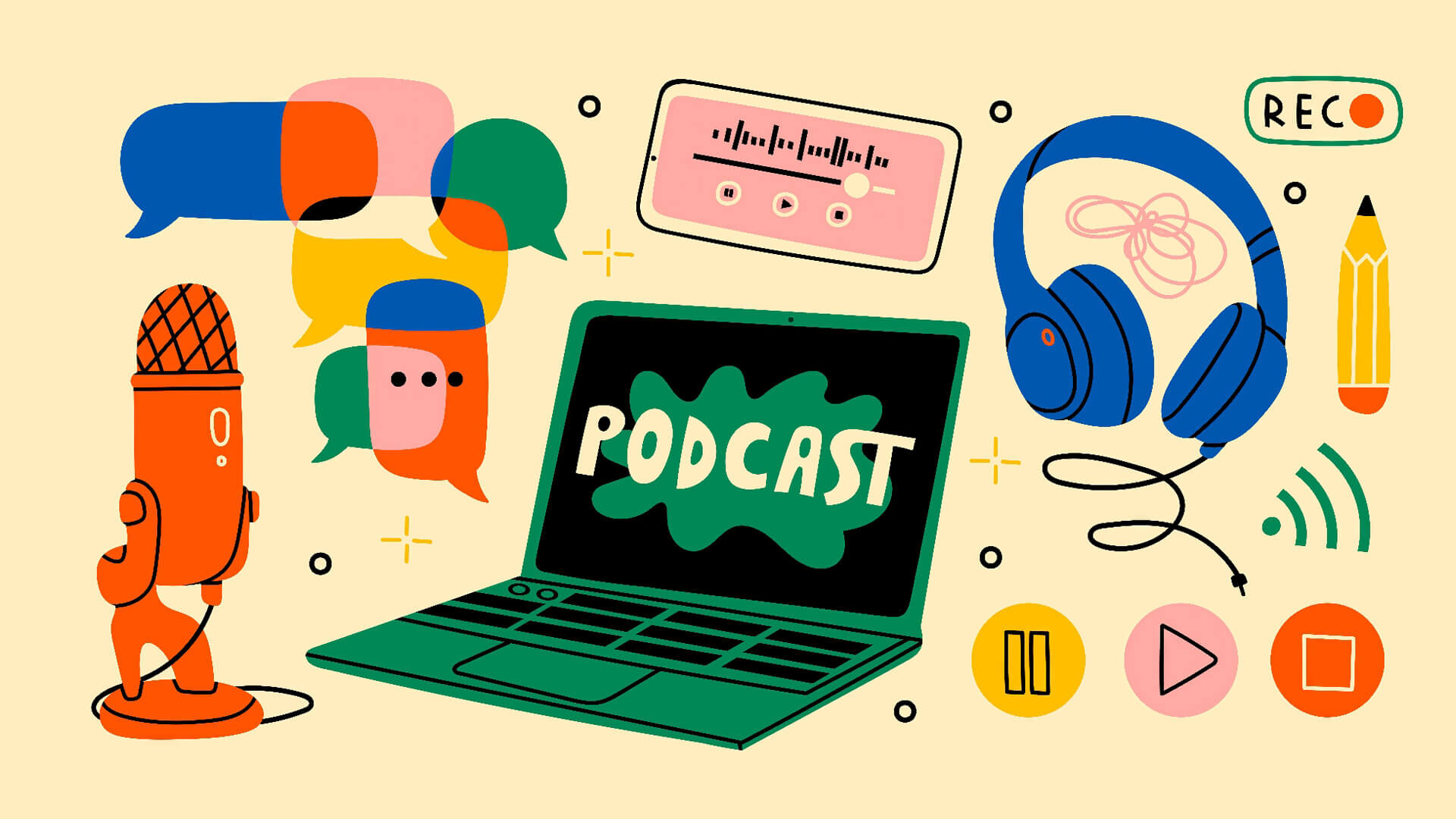
Yes, you could create more entertaining blog copy or incorporate more digestible infographics into your practises. But these are not necessarily the most effective — or even the most interesting — ways to drive traffic to your site. No, it would be best if you thought more creatively in an increasingly multifaceted online media landscape.
This is where podcasts can greatly boost your onsite SEO efforts.
Want to receive updates? Sign up to our newsletter
Each time a new blog is posted, you’ll receive a notification, it’s really that simple.
Why Podcasting Makes a Difference
Podcasts are definitely among the more accessible forms of media any brand can produce. It would be best if you relatively had relatively little equipment and there were multiple platforms to host your episodes. Nevertheless, every podcast produced still represents an investment of time, money, and strategy. So, why should you funnel some of your valuable resources into this format?
Well, the simple answer is that podcasting is a sure way to get a pretty effective return on your investment. Podcasting has a multifaceted impact on SEO strategy. While we’ll explore the key elements in more detail later in the article, the primary motivations to engage include:
- A podcast is another form of unique content: One of the challenges many brands and marketers face is producing enough unique content to support their SEO strategy and attract organic traffic to the site. Podcasts, optimised through thorough keyword research, can be produced relatively swiftly and boost other content forms like blogs and videos. This gives greater content coverage to draw visitors and sources of backlinks.
- You can integrate keywords into a podcast effectively: This content enables you to insert the keywords and phrases you intend to rank for. Importantly, you’re not limited to the usual onsite text and meta description keywords. You can also incorporate keywords into the audio itself, taking advantage of the audio search capabilities Google launched, particularly in Google Podcasts. This makes for a more thorough potential reach.
- Good podcasts are engaging: By creating an interesting, entertaining, or informative podcast, you can keep users on your site for longer. This can lead to a lower bounce rate and greater potential for engagement with other resources that affect your SEO success.
- Podcasts can demonstrate expertise, authority, and trustworthiness (E-A-T): This is a particularly important point if your brand revolves around your money or your life (YMYL) industries, like finance or medicine. Your episodes can feature deep dives into complex topics, featuring your expertise and independent experts to boost credibility. This can impact your rankings and attract new listeners.
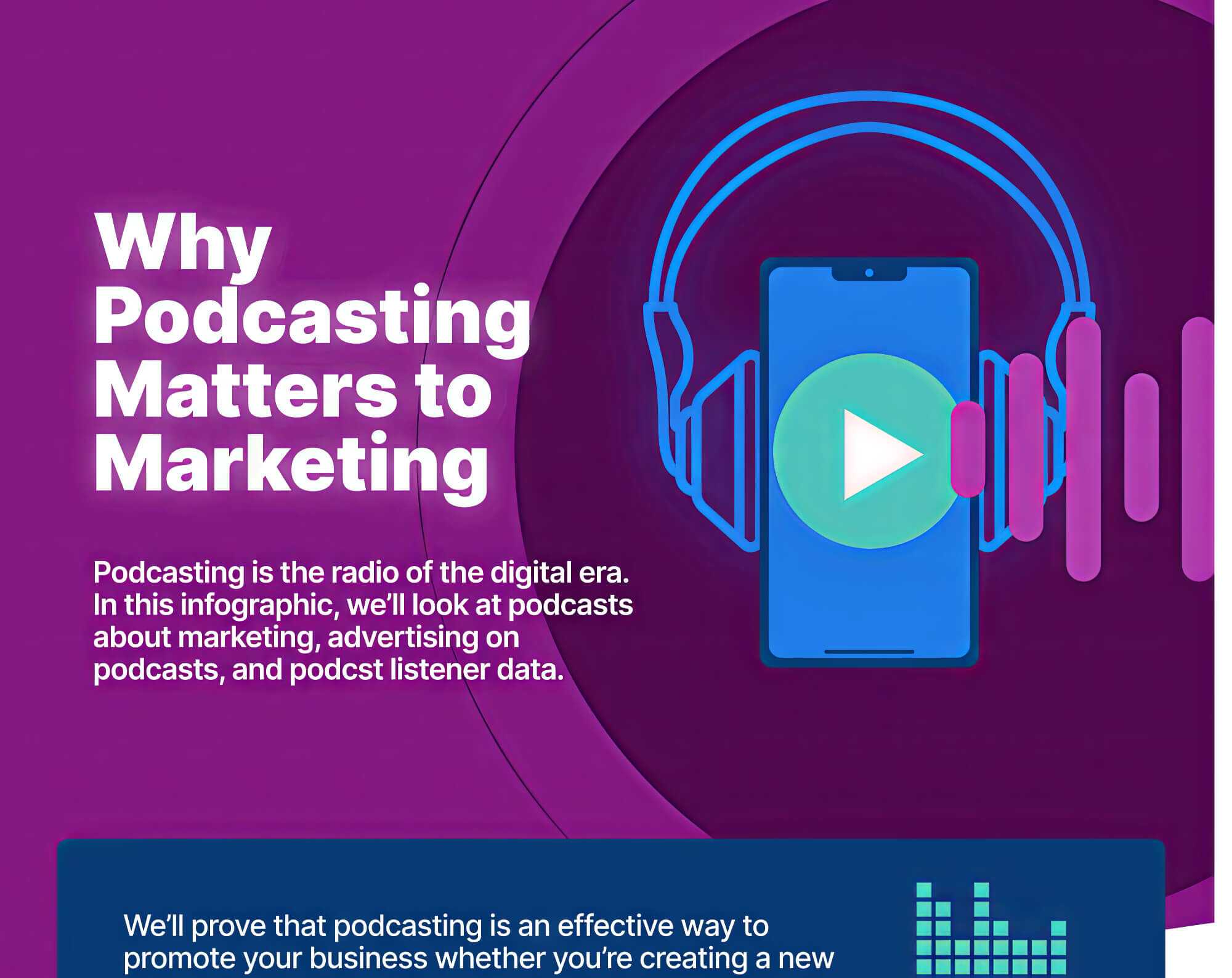
With all these perks, it’s surprising not everyone has their own podcast. But remember, just like Rome, a quality podcast with SEO advantages isn’t built overnight.
Creating a Quality Podcast
You don’t just want to create a podcast to boost your onsite SEO. Instead, You aim to make your podcast high-quality, which also happens to increase your SEO. This is the basis upon which your success hinges.
The effectiveness of a podcast as an SEO tool hinges on how credible, engaging, and enjoyable your content is. It’s crucial to focus on quality first, providing a strong foundation for everything else you build up from there to reach your audience effectively.

There are various elements to go into starting a good-quality podcast in the contemporary online media landscape. These include:
- Having clarity on your concept: You need to develop the central idea of your podcast so that it’s clear to both your audience and those actually making it. This should also be reflected in your podcast description. Importantly, this central idea should closely reflect what is essential to your brand.
- Brainstorming episodes in advance: The last thing you want to do is improvise your episode schedule. Take time to outline the ideas and intentions for at least the first ten episodes. This not only helps you to plan higher-quality content, but it also enables you to design episodes that are relevant to your SEO goals.
- Invest in good-quality equipment: Let’s face it: you’re unlikely to gain meaningful engagement from audiences on your podcast website if the quality of your audio is poor. Therefore, it’s worth purchasing equipment that can give you the clearest results. Even USB condenser microphones can achieve good results and are relatively affordable. Check out reviews from other podcasters and budget accordingly. Importantly, find tutorials on how to use these tools effectively. In addition, you may need to invest in space to record your podcast. If you can’t stretch to hiring studio space, you may need to invest in some soundproofing for your office to ensure the best audio quality for your podcast content.
- Implement strict research and review procedures: To maximise your podcast’s E-A-T potential, ensure maximum credibility. Dedicate your time and attention to ensuring that each podcast is well-researched and backed by solid resources. If you’re going to have guest interviews, your planning should extend to making certain that your guests are of the highest possible credibility. Following the recording, you must fact-check all claims and prepare supporting resources.
Although most of your time should be spent on these elements, it’s not the only factor that can boost your SEO and improve your position in search results. Most of the SEO potential can happen around the actual podcast.
Building a Podcast Brand
Today, podcasting is a thriving media industry in and of itself, attracting millions of dedicated podcast listeners. This has huge potential for your onsite SEO efforts, as global audiences are ready and willing to engage. Not to mention that there is enormous potential for collaborations with guests and other podcasts.
That said, to make the most of a “show” in any bustling media landscape, you need to build a strong brand. The more effectively you can create a unique profile for your podcast, the greater the potential is likely to be to pull in audiences, garner partnerships, and — ultimately — drive organic traffic to your website.
Here are some things you might want to consider implementing:
Engaging visuals
There are a lot of podcasts out there. Certainly, a great concept will help you to stand out, but that’s not always going to be the public’s first introduction to your podcast brand.
When audiences browse through streaming recommendations, a well-crafted thumbnail can be just the ticket to catch their eye.
Spend some time developing brand visuals for your podcast. This might not be as simple as just replicating your business’ logo. You want to have colour schemes and images that immediately communicate what your podcast is about.
Remember that thumbnails on mobile streaming platforms are small, too, so your visuals must be readable. Replicate these visuals on your site’s podcast page and all other related materials. Make sure it’s unique enough for audiences to connect it to your brand without too much effort.
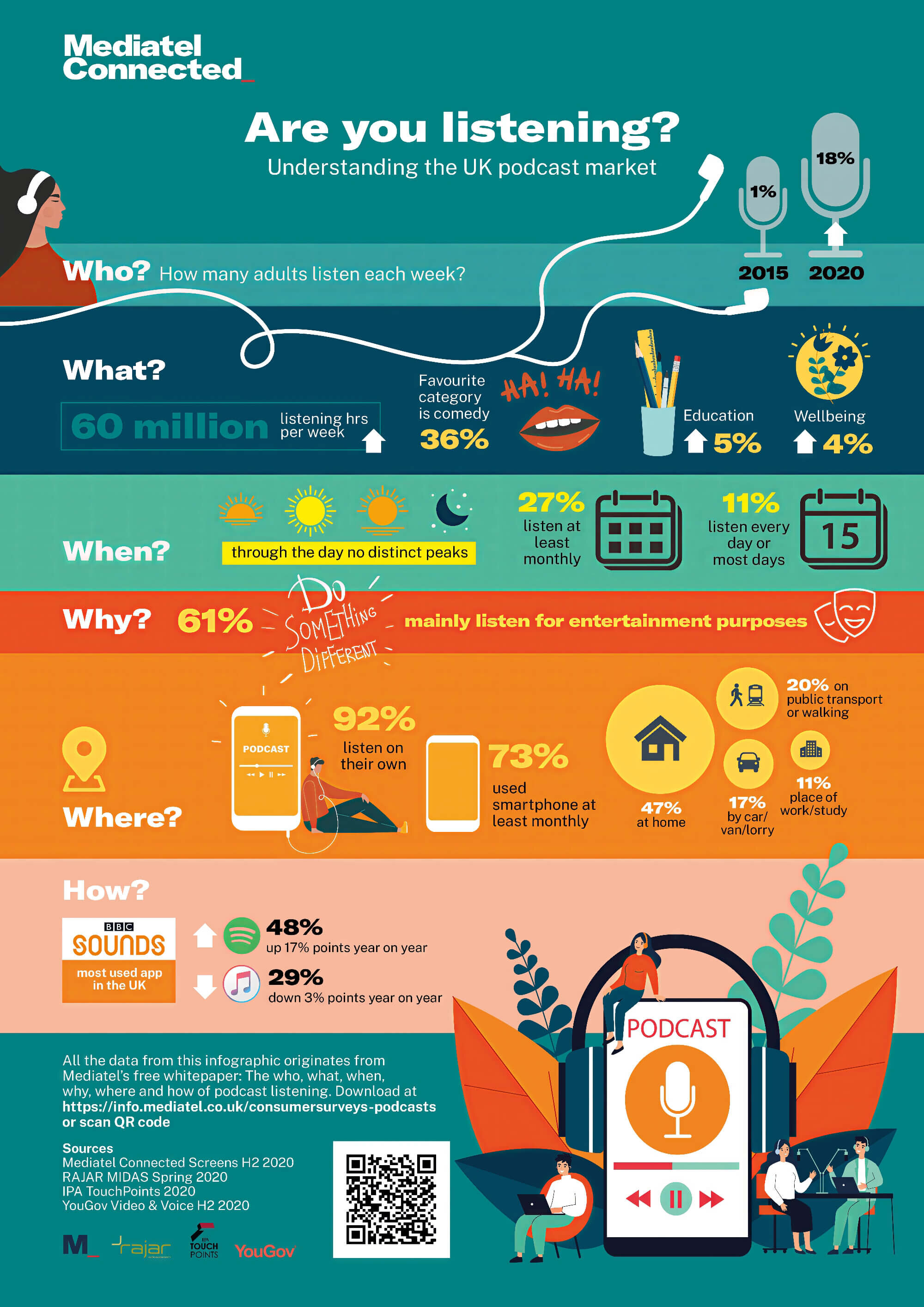
Consistency
Building a podcast brand that can impact SEO isn’t just about the visuals. Instead, you should also set audience expectations by maintaining consistency.
Choose a specific podcast format and structure that you can replicate in every episode. Do some audience research and release your episodes on a regular schedule. Select a core team of writers, producers, and hosts so that there is some consistency in the show’s voice.
These things shouldn’t make your podcasts boring or formulaic. Instead, they help provide clarity for your audience, boost trust in your professionalism, and encourage engagement.
You can create exciting creative choices, but this consistency offers a reliable framework that best serves your SEO strategy.
Integrating Keywords
Finding and optimising keywords are, of course, a staple of any SEO strategy. Podcasts offer additional opportunities to leverage this resource. Simply stuffing your podcast page with keywords isn’t a practical approach. Yet, with care and consideration, you can find that your target keywords and phrases in your written content can have a significant impact.
Some of the points of focus can include:
Content
You’re likely already familiar with utilising keywords in website content. When you’re developing a podcast, there are various ways you can refer to your keywords in relevant and strategically impactful ways.
Firstly, your podcast web page can feature keywords tied to your brand, both in the overall show description and within the specific descriptions of each episode.
You can incorporate keywords into your social media posts about each episode - one of the many SEO tips to boost website visibility. Importantly, you can also incorporate relevant keywords into the script for each episode, which can optimise audio searches.
Metadata
Metadata is a too-often overlooked source of keyword integration. While these elements may not always be immediately visible to or recognised by audiences, search engines certainly utilise them as part of crawling practises. Therefore, it’s important to ensure all aspects of your podcast metadata are optimised for your keywords.
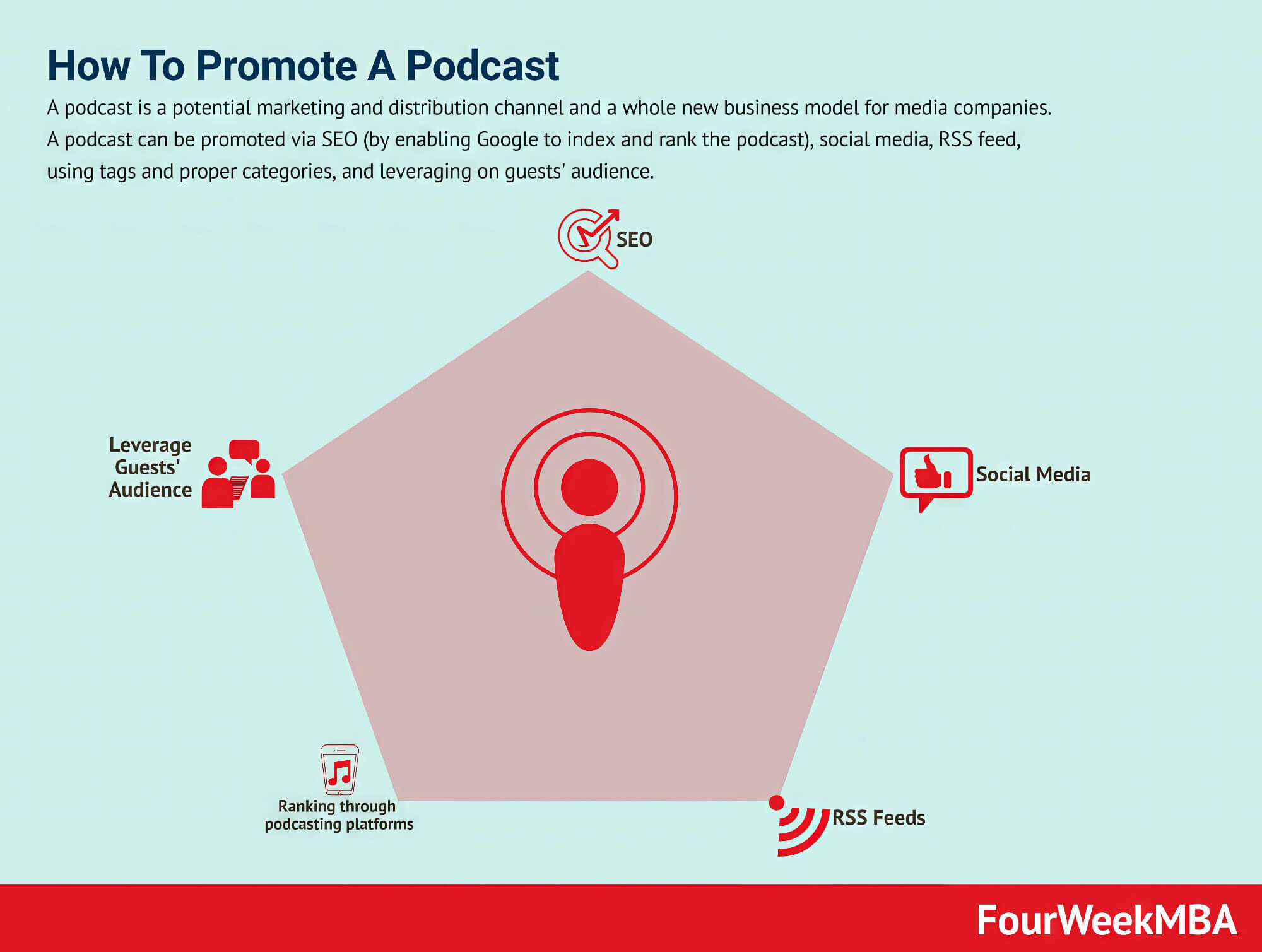
This can include something as simple as using relevant keywords in the episode titles and show names. They should be in the tags for your RSS feed and the alt text for your thumbnail images. Make sure that the meta description for your podcast web page is also populated with relevant keywords.
Transcripts
Transcripts are increasingly being recognised as an essential resource for all podcasts. Primarily, this is because having an accurate text version of your audio content aids with accessibility. Not only is this a clear ethical consideration, but it also boosts audience engagement.
However, hosting your transcripts on your website gives you another content resource to leverage relevant SEO keywords. This is another great reason to ensure that you write scripts with consideration of the words and phrases you’re looking to rank for.
Gaining Backlinks
Backlinks are among the most powerful tools of an SEO campaign. They offer a certain element of independent authority. When someone else links to your website in their content, this communicates to search engines that others consider your materials to be a credible source of information.
In addition, the more backlinks you have, the wider the potential audience reach is likely to be, leading to more organic traffic, which can lead to a greater amount of organic traffic headed to your site. It is in your best interests to optimise your podcast to attract backlinks.
Start by making sure each podcast contains information useful not just for your audience but for other content creators too. This might involve featuring interviews with well-known experts on hot topics, encouraging blog writers to link to your podcast page for quotes.
You might also provide audio tutorials, industry guidance, or life hacks in your area of expertise. This may encourage other sites to link to these when discussing the subject in their own content.
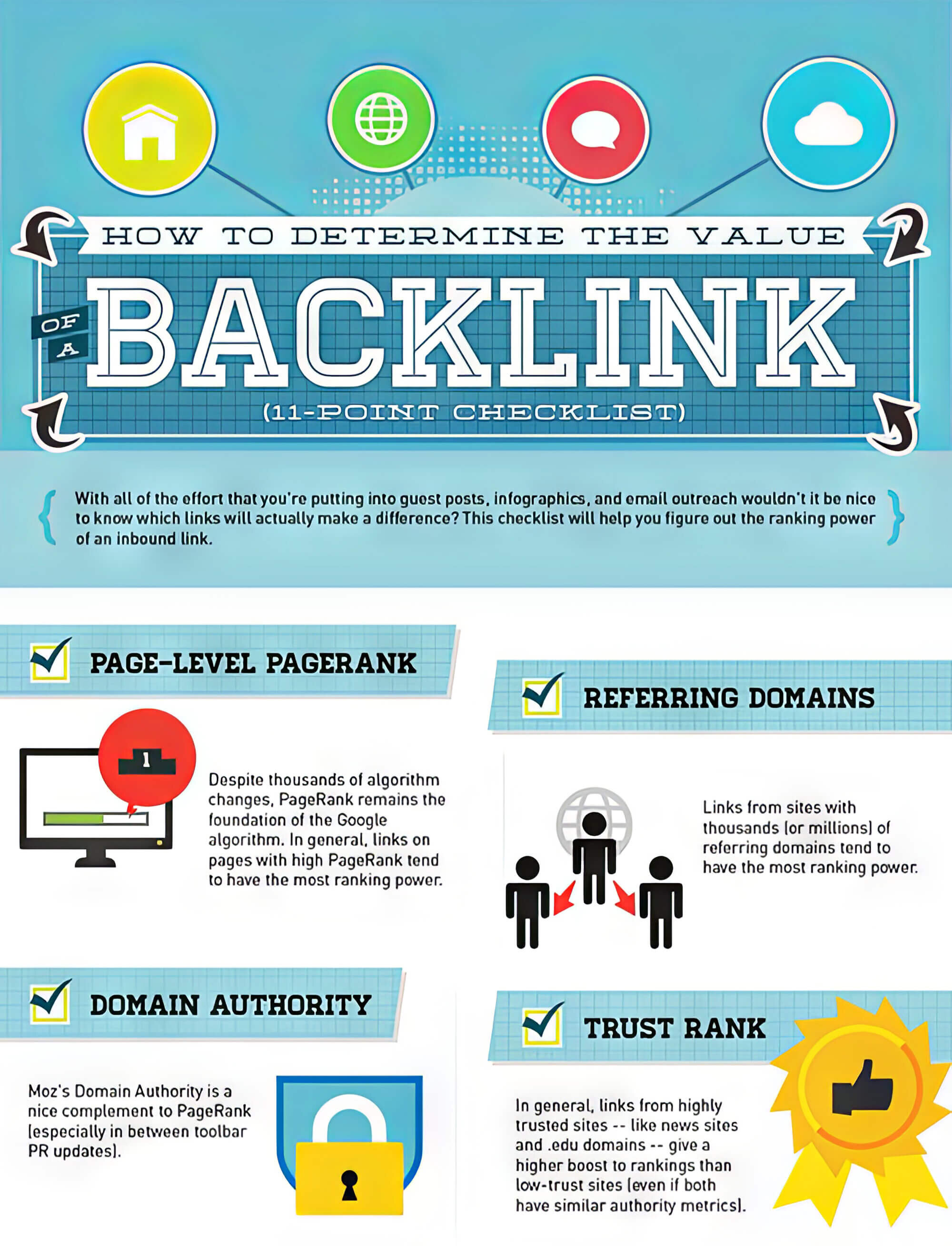
Another way to optimise for backlinks is to seek collaborations. Look for partnerships with other brands, podcasts, and influencers. Establish areas of crossover interest to create relevant episodes for your existing audience and your partners. This tends to result in links to your website on your collaborators’ pages, social media, accounts, and other channels.
It’s also wise to seek out opportunities for guest posting related to your podcast. Perhaps most obviously, your priority should be for guest posts to utilise your podcast links as a source of expertise or credibility. However, you can also gain backlinks from podcast review websites and industry newsletters. This can directly serve your SEO goals while boosting your show’s profile among relevant audiences.
Utilising and Bolstering Other Website Content
Content repurposing is a common and — when done well — effective marketing tactic. It can undoubtedly ensure an efficient approach to regular content scheduling. You’ll find that, with a bit of planning and consideration, you can repurpose content to create podcasts and also use your podcasts to bolster the life of existing content.
This can begin with using your existing blog post or video content to inspire podcast episodes. Review your user engagement to identify what posts were most popular, garnered a lot of social media comments, or drove questions. This can suggest topics your audience is keen to know more about.
The resulting podcasts shouldn’t just be a direct translation of the blog copy but rather a chance for further exploration. Offer audiences something new on the subject or interviews with other experts in the field.
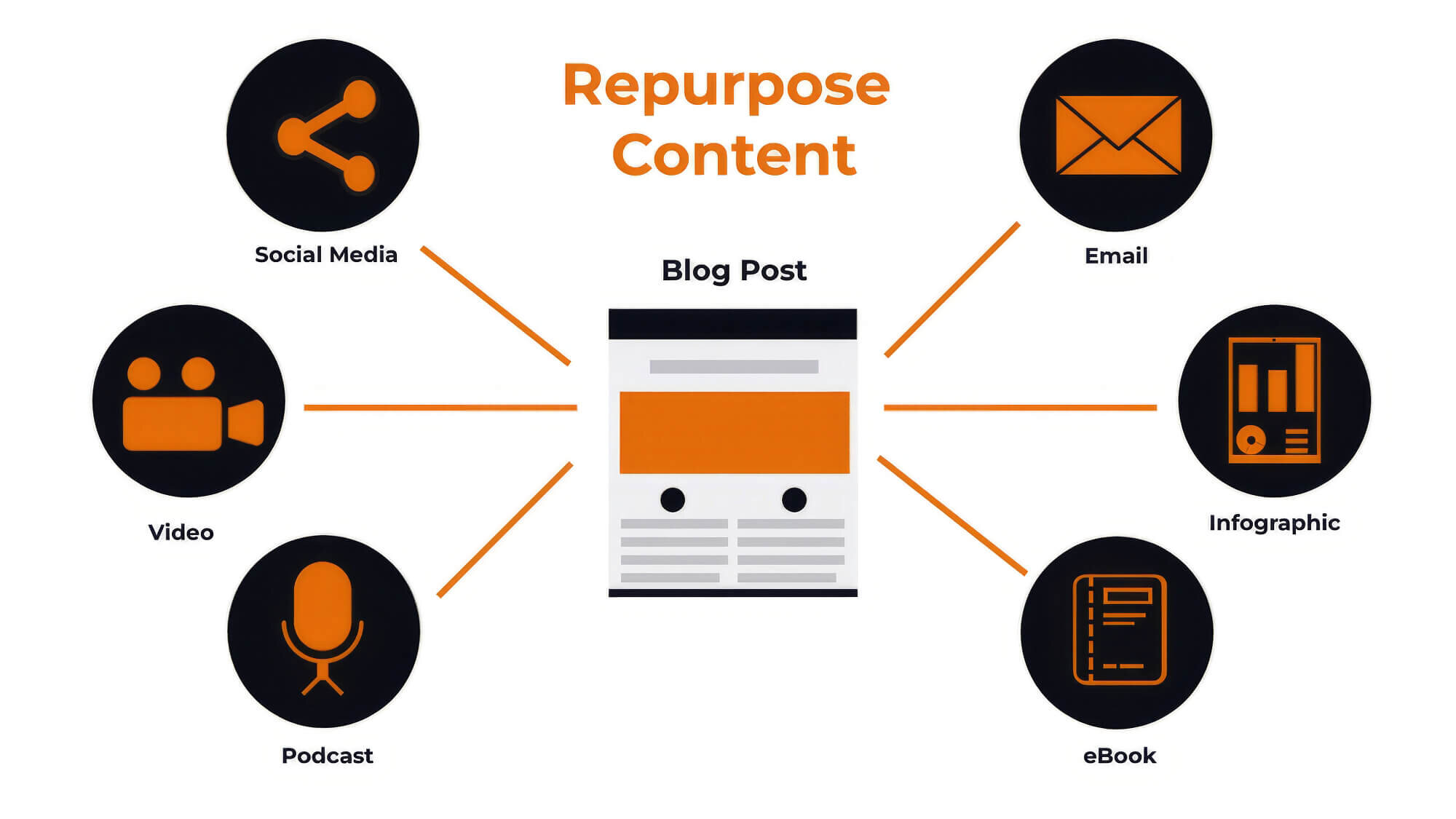
These podcasts can gain audience engagement from those who have previously read your blog content. However, they also provide you with resources to refresh the old content. You can integrate new quotes into the blog posts with links to the relevant podcast episode.
This effectively breathes new life into the posts and encourages more engagement from readers.
Another approach that can aid your SEO strategy is to create podcast episodes that explore areas related to older content without addressing or expanding on the same concepts.
This enables you to incorporate suggested “further reading” links into the web page for each podcast episode. In effect, you’re providing additional value for listeners by directing them to relevant sources of further information.
Measuring, Analysing, and Improving
A podcast can be a valuable SEO tool. Nevertheless, immediate success is never guaranteed. As with any campaign, you need to dedicate time and resources to measuring, analysing, and improving the SEO potential of your podcasts.
Indeed, you should utilise many of the data analytics processes you’re likely already using for other areas of your campaigns, including tracking how well you rank for specific search terms. Google Analytics can give you a good sense of how audiences engage with your podcast pages and how effectively this tool redirects them to other content on your site.
Keyword ranking trackers should also play a role in establishing the difference these new materials make compared to your usual content methods. Perhaps most importantly, backlink tracking and analysis can suggest how frequently your podcast is being treated as the source of expertise you really need it to be.
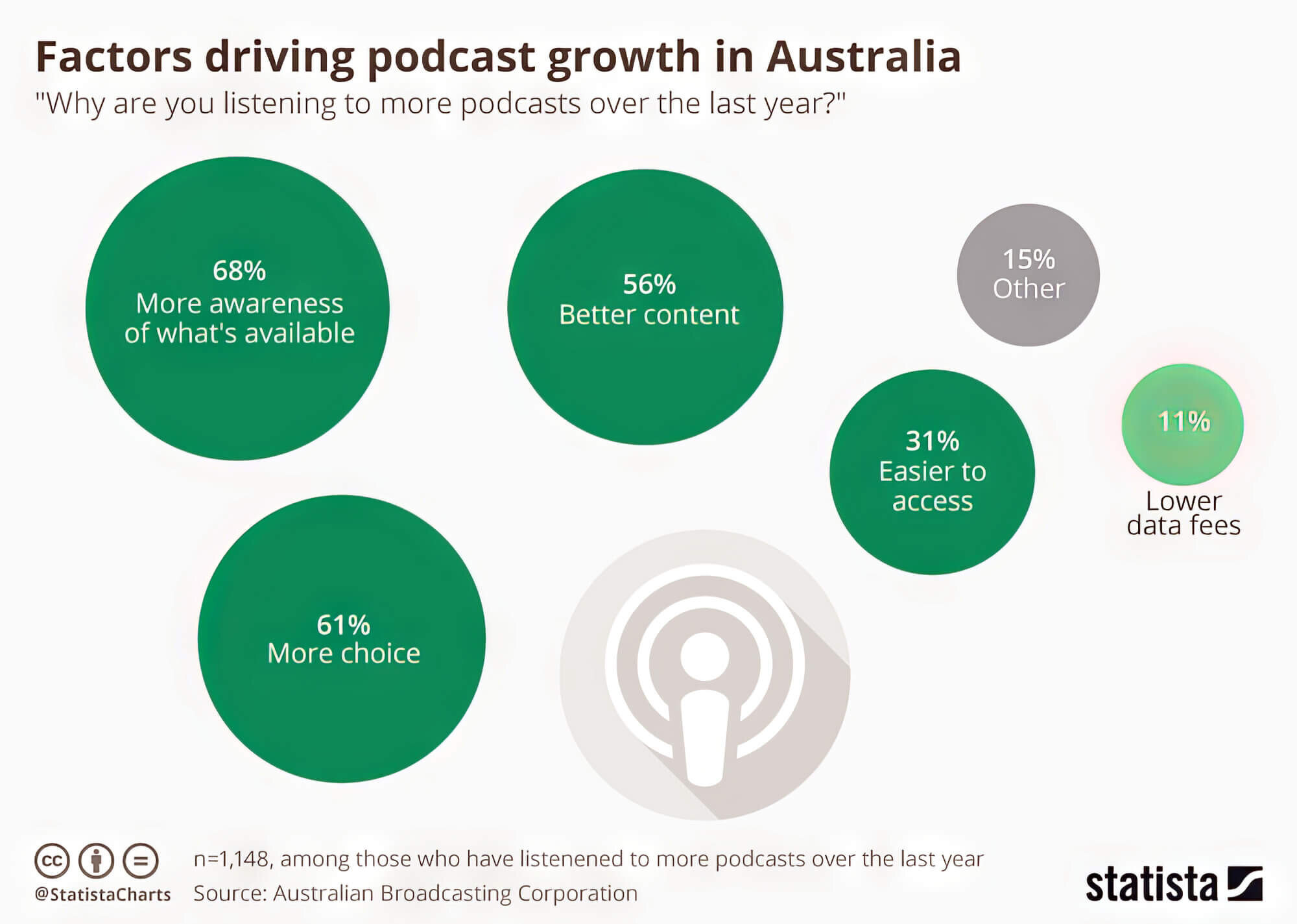
Nevertheless, you must also perform some analysis specifically related to podcast metrics. Audience engagement will be key to its efficacy as an SEO tool, so podcast analytics tools such as Megaphone by Spotify and Chartable can be helpful. These tools provide data on unique listener numbers and where listeners discover your content.
Many platforms also provide detailed episode engagement information so you can identify points at which listeners stop engaging with the podcast or what they find most appealing.
Schedule time every few weeks for your marketing team to review these insights. This allows you to make timely decisions about what improvements you can make to your strategy. You should rethink the podcast format or how effectively it supports your other website materials.
Pump Up Your Rankings with Podcasting
Podcasts are a fun and fascinating creative outlet, but they can also be a powerful addition to your SEO campaigns. As with every other marketing resource, podcasts are most effective when approaching them from a strategic perspective. Create episodes with a focus on the SEO staples.
Ensure quality and credibility in your content while also leveraging keywords mindfully. It would be best if you achieved a delicate balance between an entertaining or informative podcast and utilising tactics that help you rank.
Have a little patience. Finding that sweet spot that sees you gaining the maximum potential benefits from the tool can take a little while. But, with commitment and creativity, you can establish a powerful addition to your brand’s voice.





